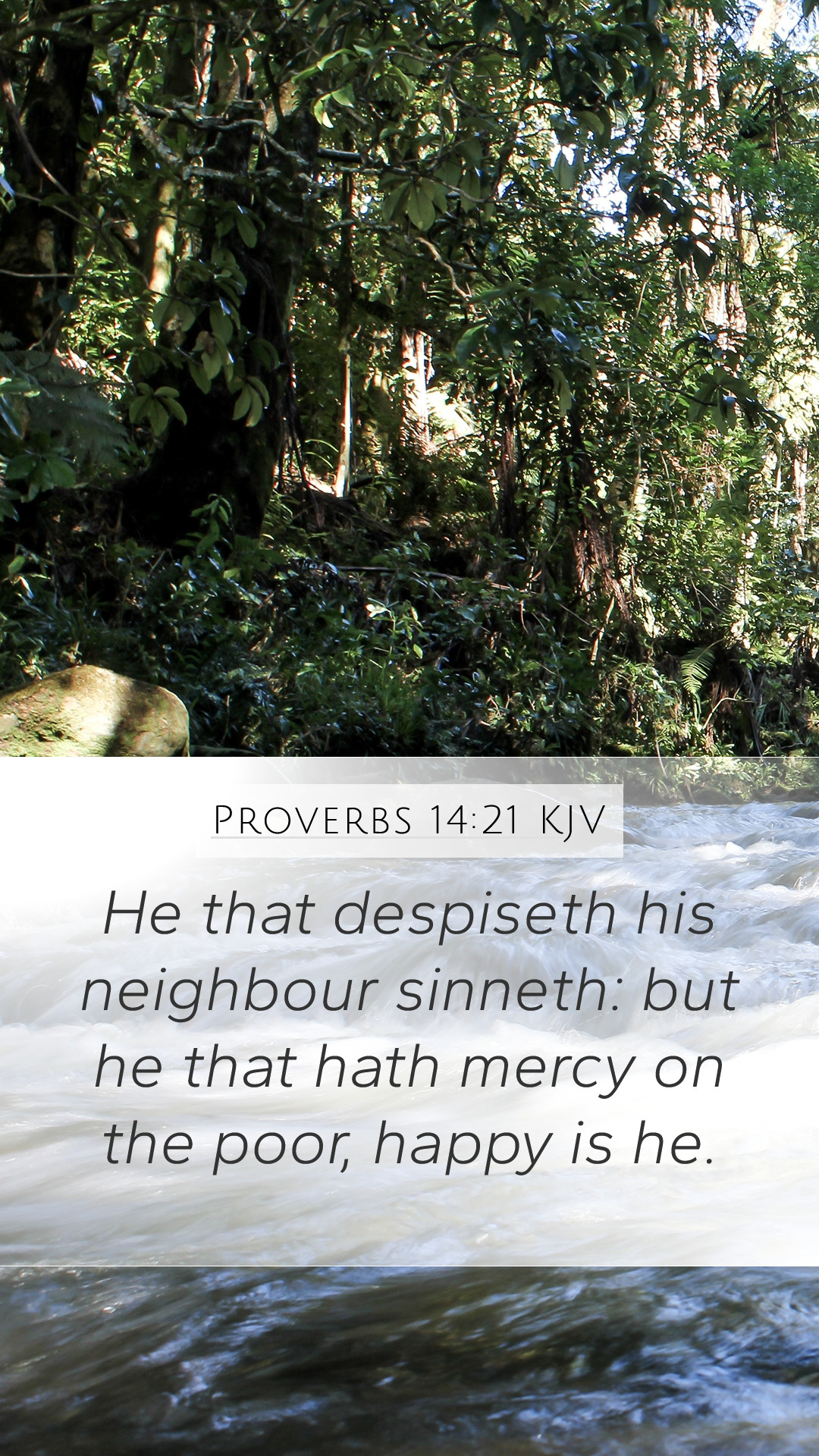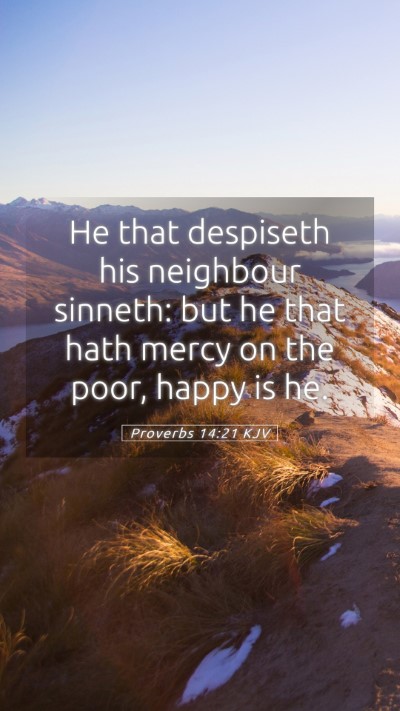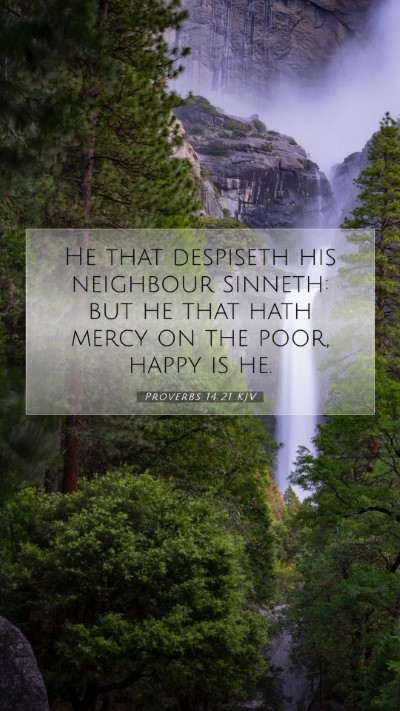Understanding Proverbs 14:21
Proverbs 14:21 states: "He that despiseth his neighbor sinneth: but he that hath mercy on the poor, happy is he." This verse addresses the moral dynamics of community relationships and the attitudes we hold towards our neighbors, particularly the less fortunate.
Bible Verse Meanings
This verse provides profound insights into the nature of sin and virtue within a social context. It posits that disdain for one's neighbor equates to sin, while mercy towards the poor is an indicator of true happiness.
Bible Verse Interpretations
-
Matthew Henry's Commentary: Henry emphasizes that this verse illustrates the folly of contempt towards others. He suggests that harboring disdain not only harms the relationship but is also detrimental to one’s spiritual well-being.
-
Albert Barnes' Notes: Barnes elaborates that the focus is on the importance of mercy. The phrase "happy is he" reflects a deeper spiritual truth — those who show compassion receive joy, as it aligns with God’s will.
-
Adam Clarke's Commentary: Clarke analyzes the importance of social responsibility, arguing that the treatment of the poor is a litmus test for righteousness. His view indicates that true happiness stems from engaging in acts of kindness and loving one's neighbor.
Bible Verse Understanding
In understanding this scripture, one must recognize the interplay between our actions towards others and our own spiritual state. The condemnation of sin highlighted here serves as a call to reflect on our behaviors, especially regarding those who are less fortunate.
Bible Verse Commentary
Commentary on Proverbs 14:21 provides a rich analysis of moral conduct. It suggests that the happiness derived from mercy is not only emotional but also spiritual. This commentary encourages readers to engage in acts of kindness as a pathway to genuine happiness.
Scripture Analysis
The significance of this verse pertains to social ethics. It challenges individuals to confront their biases against others, particularly the underprivileged. The emotional and spiritual reward of compassion is a recurring theme in biblical scripture.
Biblical Exegesis
When performing a biblical exegesis on Proverbs 14:21, it is essential to note the cultural context of ancient Israel, where community relationships were vital. The neglect of the poor was not merely a social injustice; it was viewed as a transgression against God’s commandments.
Bible Study Insights
Engaging in Bible study with respect to this verse can offer practical insights into how one interacts with society today. Discussions may cover the modern implications of showing mercy, the responsibility of caring for the less fortunate, and what constitutes sin in contemporary understanding.
In-Depth Bible Verse Analysis
This analysis reveals that the verse not only addresses sinfulness but also highlights a positive action — showing mercy. In a broader biblical sense, mercy is consistently associated with joy and righteousness.
Related Bible Cross References
- Matthew 5:7 - "Blessed are the merciful: for they shall obtain mercy."
- Luke 10:30-37 - The Parable of the Good Samaritan, illustrating mercy.
- James 2:13 - "For he shall have judgment without mercy, that hath showed no mercy; and mercy rejoiceth against judgment."
Application of Bible Verses to Daily Life
This verse encourages individuals to cultivate a heart of compassion and mercy in their daily interactions. The principle of loving thy neighbor can manifest through small acts of kindness such as assisting the needy or standing up against injustices.
Conclusion
Proverbs 14:21 serves as a timeless reminder of the importance of mercy and the consequences of overlooking the needs of others. In understanding this verse, believers are called to reflect on their own relationships and strive for a community built on love and compassion.


